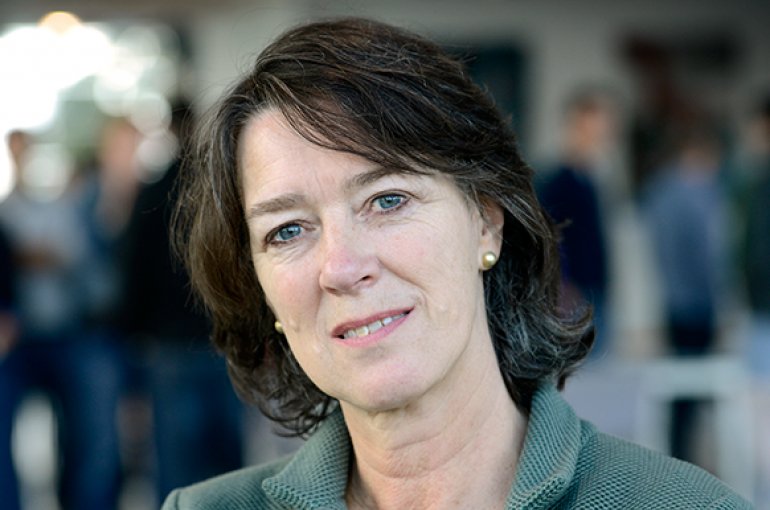Franciska de Jong new Executive Director CLARIN ERIC

As of September 2015, Prof. Franciska de Jong (University of Twente, Erasmus University Rotterdam, vice-president of the Governing Board of NWO) has been appointed Executive Director of CLARIN ERIC, the governing body of CLARIN which has its statutory seat at Utrecht University. CLARIN is the Common Language Resources and Technology Infrastructure for the humanities and social sciences in Europe. The main objective of CLARIN is to provide scholars in the humanities and social sciences seamless access to digital language data and processing tools all across Europe.
Both as a scholar and as an administrator, Franciska de Jong is eminently qualified to take on the main challenges of CLARIN in the coming years. She will lead the expansion and sustainability of CLARIN, start outreach to new user communities while strengthening collaboration with new partners and continents, and will initiate promotion of collaboration with commercial partners. Franciska de Jong will take over from Steven Krauwer (Utrecht University), who was one of the founding fathers and first Executive Director of CLARIN ERIC.
CLARIN is fostering breakthrough science by bringing together previously unheard of amounts of data and innovative tools for many languages in Europe and worldwide. This facilitates searching across multiple corpora, and analysis of these data with advanced tools, tailored to individual needs of the researchers. CLARIN opens up new paradigms of language-based research in the humanities and social sciences with new and challenging approaches to research questions.
Franciska de Jong (1955) is professor of language technology at the Universiteit Twente (UT), and director of the Erasmus Studio for e-research at the Erasmus Universiteit Rotterdam (EUR) where she also holds a chair in e-research for the social sciences and the humanities. She studied Dutch language and literature at Utrecht University, did a PhD track in theoretical linguistics and made the switch to language technology in 1985 when she started working on machine translation at Philips Research.
Currently her main research interests are in multimedia indexing, spoken document retrieval, text mining, access technology for digital libraries, interview archives and cultural heritage collections, and e-research in general. She is frequently involved in international programme committees, expert groups and review panels, and has initiated a number of projects funded within the EU framework programmes. Since 2008 she has been vice-president of the governing board of the Netherlands Organization for Scientific Research (NWO).
CLARIN ERIC and Utrecht University
CLARIN ERIC is hosted by the Netherlands, and Utrecht University has been home to the CLARIN ERIC headquarters from the very start. A strong link exists with the Faculty of Humanities of this university, in particular with the Department of Languages, Literature and Communication (Talen, Literatuur en Communicatie, TLC) and with the Utrecht Institute of Linguistics (UiL OTS). The new Executive Director will therefore work closely with the Faculty of Humanities.
More about CLARIN ERIC
The basis of CLARIN was laid in 2008-2011 with the CLARIN Preparatory Phase Project, funded by the EU in the Seventh Framework Programme (FP7). After successful conclusion of this project, CLARIN ERIC was established in 2012 as an independent European Research Infrastructure Consortium (ERIC), starting out with eight countries and one intergovernmental organisation as founding members. CLARIN is one of the five humanities and social sciences research infrastructures on the ESFRI (European Strategy Forum for Research Infrastructures) roadmap with global ambitions.
By 2015 CLARIN has grown to 25 recognised centres and over 100 participating institutions in 14 countries and the number is growing. By 2016 it is expected to have expanded to 20 countries. At the same time CLARIN is participating actively in several emerging global data infrastructure initiatives (e.g. RDA, EUDAT), and is successfully participating in a number of Horizon 2020 and other EC projects.

